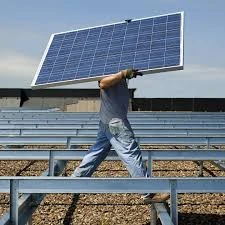Home Solar Power Solutions for Off-Grid Living and Sustainable Energy Independence
Off-Grid Solar Systems for Homes A Sustainable Energy Solution
In recent years, the demand for renewable energy sources has surged as individuals and communities seek sustainable alternatives to traditional fossil fuels. Among these alternatives, off-grid solar systems have emerged as a popular choice for homeowners wishing to harness the sun’s power while reducing their carbon footprint. This article explores the components, benefits, and considerations of installing an off-grid solar system in your home.
What is an Off-Grid Solar System?
An off-grid solar system is a self-sufficient power generation setup that allows homeowners to produce and store their electricity independently from the traditional utility grid. This system typically consists of solar panels, inverters, batteries, and charge controllers. Solar panels convert sunlight into electricity, inverters transform the direct current (DC) generated by the panels into alternating current (AC), which is used by household appliances, while batteries store excess energy for use during periods of low sunlight. Charge controllers are crucial as they ensure that batteries are charged efficiently and protect them from overcharging or discharging too much.
Benefits of Off-Grid Solar Systems
1. Energy Independence One of the most significant advantages of an off-grid solar system is energy independence. Homeowners no longer rely on utility companies for their power needs. This independence is particularly beneficial in remote areas where grid connection is impractical or too costly.
2. Cost Savings While the initial investment in solar technology can be significant, off-grid systems can lead to substantial savings over time. Once installed, the ongoing costs associated with solar energy are minimal. Moreover, homeowners can avoid fluctuating electricity rates, leading to stable energy costs.
3. Environmental Impact Off-grid solar systems are a green solution that significantly reduces your carbon footprint. By generating electricity from a renewable resource, homeowners contribute to the reduction of greenhouse gas emissions and reliance on non-renewable energy sources.
4. Increased Property Value Investing in solar energy can increase property value. Homes equipped with solar panels are often more attractive to environmentally conscious buyers, and various studies indicate that such homes can sell for a premium compared to those without solar energy systems.
5. Reliability and Resilience Off-grid solar systems offer reliability, especially in regions prone to power outages or natural disasters. Homeowners can maintain power during emergencies, giving them a sense of security.
off grid solar system for home

Considerations Before Installing an Off-Grid Solar System
While the advantages of off-grid solar systems are compelling, potential buyers must consider a few factors before installation
1. Initial Costs The upfront costs of purchasing and installing an off-grid solar system can be hefty. Homeowners should conduct a financial analysis and explore available incentives, tax credits, and financing options to mitigate these costs.
2. Energy Needs Assessment It’s crucial to accurately assess your home’s energy needs before installation. Calculate your daily energy consumption and consider future energy requirements to ensure your system can meet your demands.
3. Battery Storage Choosing the right battery system is critical for an off-grid setup. Lithium-ion and lead-acid batteries have different lifespans, costs, and efficiencies. Selecting a high-quality battery system ensures reliability and longevity.
4. Site Assessment The efficiency of a solar system depends a lot on the installation site. Factors such as roof orientation, shading from trees or buildings, and geographical location can influence the amount of solar energy generated. A professional assessment is advisable.
5. Maintenance While solar systems require minimal maintenance, components such as batteries and panels may need periodic checks or replacements. Homeowners should be prepared for these occasional maintenance tasks.
Conclusion
Off-grid solar systems present an exciting opportunity for homeowners to become energy independent, save on electricity costs, and support environmental sustainability. By understanding the components, benefits, and key considerations of such systems, prospective users can make informed decisions that align with their energy needs and sustainability goals. Investing in solar energy is not merely an upgrade to one’s property—it's a step towards a more sustainable future for generations to come.
-
Unlocking Energy Freedom with the Off Grid Solar InverterNewsJun.06,2025
-
Unlock More Solar Power with a High-Efficiency Bifacial Solar PanelNewsJun.06,2025
-
Power Your Future with High-Efficiency Monocrystalline Solar PanelsNewsJun.06,2025
-
Next-Gen Solar Power Starts with Micro Solar InvertersNewsJun.06,2025
-
Harnessing Peak Efficiency with the On Grid Solar InverterNewsJun.06,2025
-
Discover Unmatched Efficiency with the Latest String Solar InverterNewsJun.06,2025







